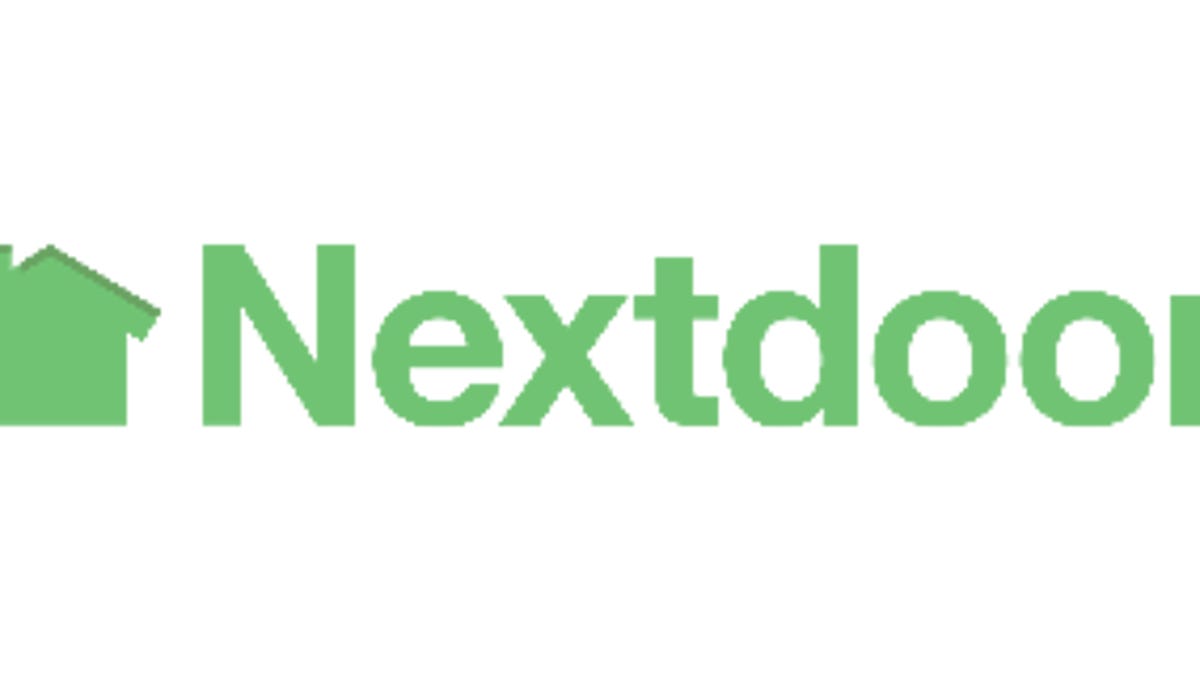Nextdoor: First private social network for neighborhoods
Nextdoor, which goes lives today, helps citizens strengthen local ties and enhance neighbor-to-neighbor communication.

Writer Walter Kirn tweeted something mid-summer that rang so poignant and true, I immediately "favorited" and re-tweeted: "The brilliant dark governing insight of social media is that most people prefer socializing alone."
Sure, all of this newfound sharing and real-time communication is awesome indeed. But the very same digital tools that heighten our reach and accessibility are somehow alienating us from each other more so than ever before. Human-to-human connection and communication, it seems, tends to get too intermediated by gadgets and gizmos.
Today, there's a new social network rolling out nationwide to help bridge the distance between folks who couldn't be physically closer: neighbors. Fittingly, it's called Nextdoor. It's designed to help neighbors connect and communicate online about important information, services, and goings-on in their specific communities. Being neighborly has somehow gotten lost in the digital era. Nextdoor is working to reverse that.
Nirav Tolia, Nextdoor's co-founder and CEO, told CNET, "People are using the technology to bring back a sense of community." And that's a good thing considering the majority of Americans only know some of their neighbors names and 28 percent don't know any of their neighbor's names, according to a Pew Research report.
After a year in private beta, Nextdoor quickly spread by word of mouth from Menlo Park, Calif., to 175 neighborhoods in 26 states. Apparently, no marketing, advertising, focus groups or any paid incentives were involved. Once local residents get onto Nextdoor, Tolia says, the adoption has been fast and neighbors are active and engaged. "They rely on this thing like a public utility," he said.
Local communities anywhere in the United States can create private social networks on Nextdoor for their neighborhood. Each site is owned and maintained by locals actually living in the neighborhood. Once residents verify their addresses and sign up for the site using their real names, they have access to a neighborhood directory, map, events, marketplace ("buy," "sell," and "free") and local service recommendations like "great babysitter" or nearby resources such as veterinarians, dentists, schools, country clubs, and churches. Nextdoor can also serve as an area "blotter" to report and share news about break-ins or suspicious activity. Disaster preparedness is yet another service that Nextdoor plans to offer local neighborhoods.
Neighbors choose how much information they want to disclose on their personal profiles (e-mail address, work and/or home phone, or street name instead of exact address.) Members may also be contacted through private messages directly via their profile pages. Personal e-mail addresses do not have to be revealed.
Nextdoor has several ways to verify new members actually live in the neighborhood. A postcard may be sent to a new member's address with a special code to be plugged into Nextdoor.com. Once they've logged in, neighbors are asked to confirm their account. Signing up with a home phone number or credit card linked to a home address also works as verification. Alternatively, verified neighbors can invite other neighbors to join by sending an official postcard or flyer from Nextdoor.
The social startup is definitely filling a void. Most neighborhoods across the United States don't have a geo-specific Web resource or a hyper-local e-mail listserv, said Bill Gurley, a general partner at Benchmark Capital, Nextdoor's lead investor. (Shasta Ventures is another investor, but funding specifics have not been disclosed.) And those neighborhoods that do have their own listservs are looking for more, Gurley said. "There are a number of communities that have turned off their listserv and moved everybody onto this [Nextdoor]," he said. Unlike e-mail listservs, Nextdoor keeps an archived database of service recommendations and classifieds, he added. Gurley is a Nextdoor board member along with Rich Barton, Zillow's chairman and co-founder.
Tolia who is armed with considerable startup experience after key roles at Epinions and Shopping.com, says he anticipates considerable growth for Nextdoor. Over the next two to three years, he says, "All neighborhoods will be connected through a private social network."
Redwood City, Calif. is one city embracing Nextdoor's approach. All 22 neighborhoods in this Bay Area city will soon establish a private Web site on the new social network. But it's not just tech-savvy communities using Nextdoor. Neighborhoods from Memphis to Santa Fe have also welcomed the new tool.
Turns out, homeowner's associations, supermoms, and empty nesters are the earliest adopters of Nextdoor. HOA's are often run by volunteers with limited time and technology. Busy moms running from activity to errands to school appreciate being connected to neighbors and community resources and Nextdoor makes it easy for them, Tolia said.
As for the business model, Tolia said, "It's really important to get the user experience right. Nextdoor is well capitalized, we're not seeking more funding." Over time, though, Nextdoor plans to work with local businesses and offer specialized deals for neighborhoods, said Benchmark's Bill Gurley. "Benchmark is a pretty patient investor. I'm in no hurry. I'm much more interested in making a huge impact."